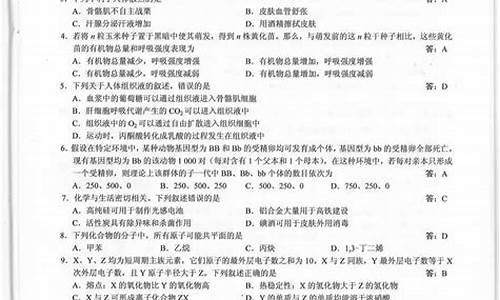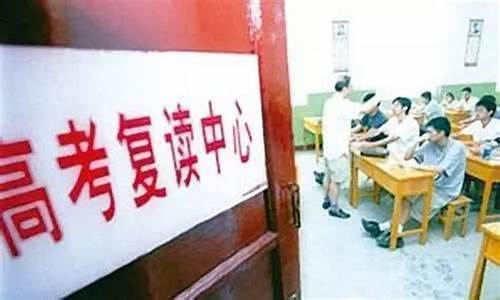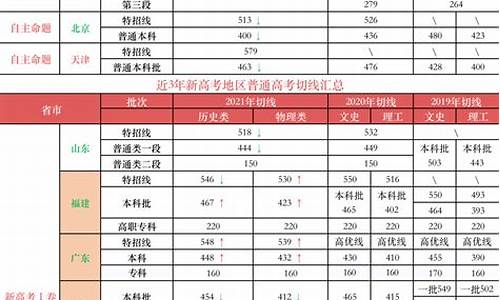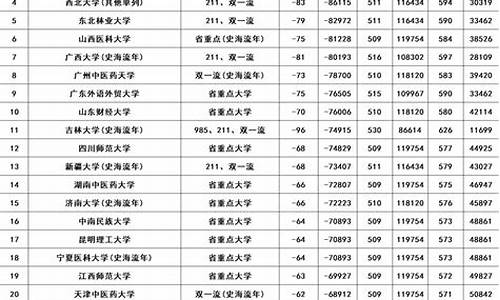您现在的位置是: 首页 > 教育政策 教育政策
高考信息模拟卷理科综合答案2024,高考信息模拟卷
tamoadmin 2024-06-03 人已围观
简介1.2012高考新课标高考模拟卷 英语答案 一飞冲天的2015年全国100所名校最新高考模拟示范卷语文参考答案及评分标准2014.1第一部分(27分)一、本大题共5小题,每小题3分,共15分。1.C(巧夺天工:指精巧的人工胜过天然,形容技艺极其精巧。)2.B3.C4.A(B缅miǎn怀,淋漓尽致 C 疵cī,非此即彼 D摒bìng,弥足珍贵)5.D二、本大题共4小题,每小题3分,共12分
1.2012高考新课标高考模拟卷 英语答案 一飞冲天的

2015年全国100所名校最新高考模拟示范卷
语文参考答案及评分标准
2014.1
第一部分(27分)
一、本大题共5小题,每小题3分,共15分。
1.C(巧夺天工:指精巧的人工胜过天然,形容技艺极其精巧。)
2.B
3.C
4.A(B缅miǎn怀,淋漓尽致 C 疵cī,非此即彼 D摒bìng,弥足珍贵)
5.D
二、本大题共4小题,每小题3分,共12分。
6.A(穷:困厄,绝境)
7.B(表被动。A代词,指吾粲;动词,到,往。C定语后置的标志;代词。D作状语,表反问,为什么;作定语,什么。)
8.B(省略成分应为“水中生人”)
9.A(“表现不凡”有误;在孙河奏请之前,吾粲已为小吏。)
第二部分(123分)
三、本大题共4小题,共35分。
10.(4分)参考答案:文章第②段写洞口之战时,面对落水呼救的兵卒,吾粲不顾大船沉没的危险,救活一百多人。由此看出他是一个果断、见义勇为的人。
(概括内容2分,说明性格特点2分。意思对即可。)
11.断句(5分)
桓公入蜀/至三峡中/部伍中有得猿子者/其母缘岸哀号/行百余里不去/遂跳上船/至便即绝/破其腹中/肠皆寸寸断/公闻之怒/遂黜其人
(评分标准:标记“/”处,共10处,每断对2处,得1分;每断错2处,扣1分,扣完为止。)
参考译文:
桓温带兵进入川蜀地区,到了三峡,部队中有人抓到一只猿崽。那猿崽的母亲沿着长江岸边哀号鸣叫不已,一直追着船队跑了一百多里还不离开,终于跳到了船上,一跳到船上便气绝死了。人们剖开它的肚子,才发现它的肠子都断成一寸寸的了。桓公听说这件事后大怒,于是罢黜了那个人。
12.默写(8分)
①风乎舞雩
②抟扶摇而上者九万里
③彼竭我盈
④东晋
⑤王羲之
⑥滕王阁序
⑦亦使后人而复哀后人也
⑧尽吾志也而不能至者
(每空1分,有错则该空不得分。)
13.(18分)
①(3分)A(“因为战乱”有误)
②(5分)B(3分) E(2分)(此两项为比喻句)
③(10分)评分要点:(举例2分,赏析4分,语言4分。)
四、本大题共3小题,共13分。
14.(5分)B(2分)E(3分)(A是卡尔思考的课题,而非事实;“正在牺牲”不等于“丧失了”;C卡尔是引用他人的研究成果;D文中是先改变大脑神经系统,从而影响人的思维方式。)
15.(4分)
①互联网从总体上提升了大多数人的阅读时间。
②互联网式的碎片化阅读,让随时阅读成为了可能和习惯。
③电子化阅读也有可能促发深度思考。
④利用互联网的交互式和可拓展性,能让阅读走得更远更深入。
(4点,每点1分)
16.(4分)
数据“46.7%”说明小学生的网络阅读具有普遍性,有一定规模。
(说明数据1分,结合理论1分,提出建议2分。)
五、本大题共3小题,共15分。
17.(4分)B C(B“承上启下”、“过渡段”、“描绘今日的过年”有误。C“意在说明母亲迷信”有误。)
18.(5分)说明父亲祭祖非常慎重、虔诚(1分),表现了他对先祖的怀念和崇敬(1分),对先祖或神灵护佑的祈求(1分);父亲的行为也让我懂得了对生命的慎重,懂得敬与爱,懂得珍惜和感谢(2分)。(意思对即可)
19.(6分)过年异常热闹而忙碌;过年食物丰盛;过年有许多禁忌,感觉神秘;对除夕夜尤其感到意义深重(母亲的感谢、怀念和祝愿;父亲教我懂得了对生命的慎重,懂得敬与爱,懂得珍惜和感谢);有领压岁钱的欢欣。
(答对1点得1分,答对4点得5分,答对5点得6分。)
六、本大题共2小题,共60分。
20.(10分)(有叙述和描写4分;有评价2分;语言4分。)
21.(50分)(请参考高考评分标准评分)
2012高考新课标高考模拟卷 英语答案 一飞冲天的
链接: 提取码: bfp5
2021届高考模拟预热卷押题卷,全国卷百度网盘高考押题试卷PDP文档分享。
2012年高考英语模拟试卷(含答案)(试卷总分:120分 考试时间:100分钟)
第Ⅰ卷(选择题 共85分)
第一部分:英语知识运用(共两节,满分45分)
第一节 单项填空(共15小题;每小题1分,满分15分)
从A、B、C、D 四个选项中,选出可以填入空白处的最佳选项。
1. —The garden has four gates in different directions, so you may enter it and relax through any of them in the daytime.
—_______.
A. Very good B. Very convenient C. That’s good D. I like it
2. —I ran into _______ back of _______ truck yesterday and damaged my car badly.
—I suppose you were driving too fast.
A. the; the B. a; a C. the; a D. a; the
3. Visitors can stand on the top of Oriental Pearl Television Tower, from where they can have a better ______ of the city of Shanghai.
A. sight B. scenery C. scene D. view
4. Medicine should not be kept _______ it is accessible to children.
A. which B. where C. how D. that
5. The village which they lived in for many years _______ by Typhoon Morakot and now there is nothing to be seen.
A. was destroyed B. has been destroyed C. destroyed D. had destroyed
6. Many of them turned a deaf ear to his advice, even though they knew it to be _______.
A. valuable B. reliable C. flexible D. acceptable
7. Hillary Clinton arrived in Pyongyang on August 4, 2009, ______ the start of the short visit to Korea.
A. marked B. having marked C. marking D. to mark
8. The color of the shirt does not _______ that of the tie.
A. fit B. match C. suit D. reach
9. But for your help, we _______ the game.
A. can lose B. will lose
C. had lost D. would have lost
10. She was very fond of speaking French, _______ indeed she spoke well.
A. which B. that C. of which D. how
11. _______, they make mistakes as part of their everyday behavior.
A. Not only humans make mistakes B. Not only do humans make mistakes
C. Only humans make mistakes D. Only do humans make mistakes
12. One cause of this attitude students have can be represented by the fact _____ young teachers don’t know how to impose their respect among their students.
A. which B. that C. why D. /
13. I don't want to _______ the topic, but why on earth did you get home that late last night?
A. take up B. make up C. break up D. bring up
14. 一Did you tell him that we’ve put off the meeting?
一No. He rushed out before I could say ________.
A. something B. nothing C. anything D. everything
15. I won't have anyone _______ in here. Whoever breaks the regulation will get punished.
A. to smoke B. smoke C. smoked D. smoking
第二节 完形填空(共20小题,每题1.5分,共30分)
阅读下面短文,撑握其大意,然后从16—35各题所给的四个选项(A、B、C和D)中,选出最佳选项。
Before discussing different kinds of emotions, let us briefly talk about how researchers 16 bodily processes, actions and behavior, and how this relates to what we do in our daily lives when we observe emotions in 17 .
Bodily processes can be directly measured by 18 of a polygraph. When a polygraph is skillfully used to 19 how we react bodily with what we are 20 , it is called a "lie detector". Bodily processes can also be measured 21 . This is what we do when we observe someone blushing (脸红). However, we are not always 22 of what bodily processes respond to.
Measuring action 23 behavior is the other way researchers assess the emotions. 24 , one measure of fear of snakes is how 25 a person will go to the snake. Another procedure is to have a person 26 how afraid he is, or how he feels, in this way, researchers have 27 the so-called "fear thermometer" to assess a person's fear. 28 our everyday living, we do very much the same thing. Only not too 29 . We react to what a person does, what he says, 30 he says it, and how he looks. Is he smiling? Is his voice trembling? We put all this 31 together to infer what a person is feeling.
32 , we do not always act as we feel. Sometimes we do things that we don't feel like doing. 33 we say we feel one way and then we act another. Actors, for example, successfully learn to "make believe" emotions, or learn to 34 them. Thus we 35 always tell what a person is feeling by what he says or by what he does.
16. A. measure B. describe C. make D. use
17. A. other B. others C. another D. the others
18. A. ways B. methods C. means D. tools
19. A. combine B. treat C. examine D. compare
20. A. doing B. saying C. observing D. carrying
21. A. directly B. indirectly C. easily D. difficultly
22. A. afraid B. fond C. aware D. accused
23. A. but B. so C. and D. or
24. A. For example B. On one hand C. As well as D. At times
25. A. slow B. fast C. far D. close
26. A. tell B. say C. talk D. speak
27. A. approved B. discovered C. developed D. informed
28. A. During B. With C. On D. In
29. A. skillfully B. systematically C. naturally D. eventually
30. A. why B. where C. how D. whether
31. A. imaginations B. observations C. impressions D. awareness
32. A. Therefore B. Otherwise C. However D. Anyway
33. A. Sometime B. Someway C. Sometimes D. Anytime
34. A. express B. hide C. act D. say
35. A. needn’t B. shan’t C. won’t D. cannot
第二部分 阅读理解(共20小题;每小题2分,满分40分)
阅读下列短文,从每题所给的四个选项(A、B、C和D)中,选出最佳选项。
A
Stephen William Hawking was born on 8 January 1942 (300 years after the death of Galileo) in Oxford, England. His parents' house was in north London, but during the Second World War Oxford was considered a safer place to have babies. When he was eight, his family moved to St Albans, a town about 20 miles north of London. At eleven Stephen went to St Albans School, and then on to University College, Oxford, his father's old college. Stephen wanted to do mathematics, although his father would have preferred medicine. Mathematics was not available at University College, so he did Physics instead. After three years and not very much work he was awarded a first class honours degree in Natural Science.
Stephen then went on to Cambridge to do research in Cosmology, there being no-one working in that area in Oxford at that time. His supervisor was Denis Sciama, although he had hoped to get Fred Hoyle who was working in Cambridge. After gaining his Ph.D. he became first a Research Fellow, and later on a Professorial Fellow at Gonville and Caius College. After leaving the Institute of Astronomy in 1973 Stephen came to the Department of Applied Mathematics and Theoretical Physics, and since 1979 has held the post of Lucasian Professor of Mathematics. The chair was founded in 1663 with money left in the will of the Reverend Henry Lucas, who had been the Member of Parliament for the University. It was first held by Isaac Barrow, and then in 1663 by Isaac Newton.
Professor Hawking has twelve honorary degrees, was awarded the CBE in 1982, and was made a Companion of Honour in 1989. He is the recipient of many awards, medals and prizes and is a Fellow of The Royal Society and a Member of the US National Academy of Sciences.
36. Stephen W. Hawking went to the same college as _________at his teenage.
A. Galileo B. his father C. Isaac Barrow D. Isaac Newton
37. Which of the following shows the right order of what happened to Hawking?
a. He gained his Ph.D.
b. He went to Cambridge.
c. He was given a first class honor degree.
d. He began to hold the post of Lucasian Professor of Mathematics. ecbad
e. He went to St Albans School.
A. e-c-b-a-d B. a-e-c-d-b C. a-e-c-b-d D. c-b-d-e-a
38. According to the passage, Stephen W. Hawking had never spent much time studying _______.
A. Cosmology B. Mathematics C. Physics D. Medicine
39. Before Stephen Hawking went to Cambridge, ____________.
A. there was no one studying cosmology in England.
B. There was no one studying cosmology in Oxford
C. There were only a few scientists studying cosmology in Oxford
D. Cosmology is widely studied in Britain.
其余的见参考资料。(文件太大,传不上。)









